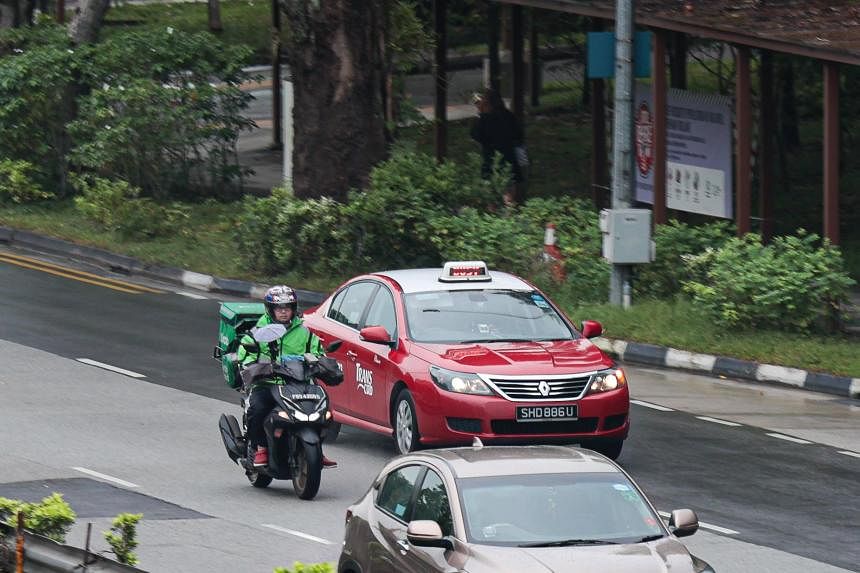SINGAPORE – The Competition and Consumer Commission of Singapore (CCCS) is having a second look at ride-hailing firm Grab’s acquisition of Singapore taxi operator Trans-Cab.
On Jan 31, the CCCS said it still has concerns about a likely reduction in competition should the deal proceed.
Despite “certain commitments” made by Grab, the CCCS said the company had not adequately addressed the concern that the proposed acquisition may give it “the ability and incentive to leverage its ownership of the Trans-Cab fleet to induce Trans-Cab drivers to use Grab’s ride-hail platform, whilst discouraging them from using rival ride-hail platforms”.
The Straits Times first broke the news on July 20, 2023, that Grab was proposing to buy Trans-Cab, with the ride-hailing firm confirming it on the same day.
In a statement, the commission said it found that the proposed duration of two years for the unspecified commitments is insufficient to address concerns that would arise from a permanent change in market structure.
“CCCS also found Grab’s monitoring mechanism, which was to be self-policing in nature, to be insufficient,” the commission added, noting that it was thus unable to accept Grab’s proposed commitments.
The CCCS has started the second phase of the review, which will be “an in-depth review of the proposed acquisition by Grab Holdings through its wholly owned subsidiary, Grab Rentals, of 100 per cent of the shares of Trans-Cab Holdings”.
The commission first started a review of the proposed acquisition about two weeks after news of the deal became public. On Oct 16 of that year, it raised competition concerns with both parties after completing its preliminary review.
“Based on the information furnished by the parties and third-party feedback from industry players and members of the public, CCCS was unable to conclude... that the proposed acquisition would not raise any competition concerns,” the commission noted.
On Oct 31, 2023, Grab proposed certain commitments to address the competition concerns. But the CCCS said that without an in-depth review, it was unable to decide if the proposed commitments were adequate.
The CCCS said that during phase two of the review, Grab may propose revised commitments to address any competition concerns.
Grab said in a statement on Jan 31 that it would “continue to support the CCCS on their review of the deal”.
Speaking also on behalf of its acquisition target, Grab added: “Grab and Trans-Cab are committed to ensuring that the acquisition benefits commuters and helps to raise the overall standards of the point-to-point transportation industry.
“Digitalising Trans-Cab’s fleet will lead to improved driver productivity and taxi availability so that consumers can get a ride more easily. This will also improve driver earnings. We remain hopeful that the review will lead to a favourable outcome.”
The CCCS said phase two would take 120 business days to complete, which means a verdict could be out in the middle of the year.
Industry observers said that even if the deal is approved, Grab might call for a revaluation of its offer, which is said to be in excess of $100 million.
This is because Trans-Cab’s fleet would have aged by a year, and by then, certificate of entitlement prices might have fallen substantially, pulling down the value of existing vehicle fleets.
The development thus far mirrors a December 2017 proposed merger between Singapore taxi giant ComfortDelGro and US ride-hailing firm Uber.
ComfortDelGro had proposed to buy 51 per cent of Uber’s wholly owned car rental unit Lion City Holdings for $642 million.
The competition watchdog conducted a review soon after the proposal came to light.
In February 2018, it decided to proceed to the second phase of the review after raising concerns that the deal might be anti-competitive.
But even before a decision was made, Uber announced in March 2018 that it was exiting South-east Asia.


